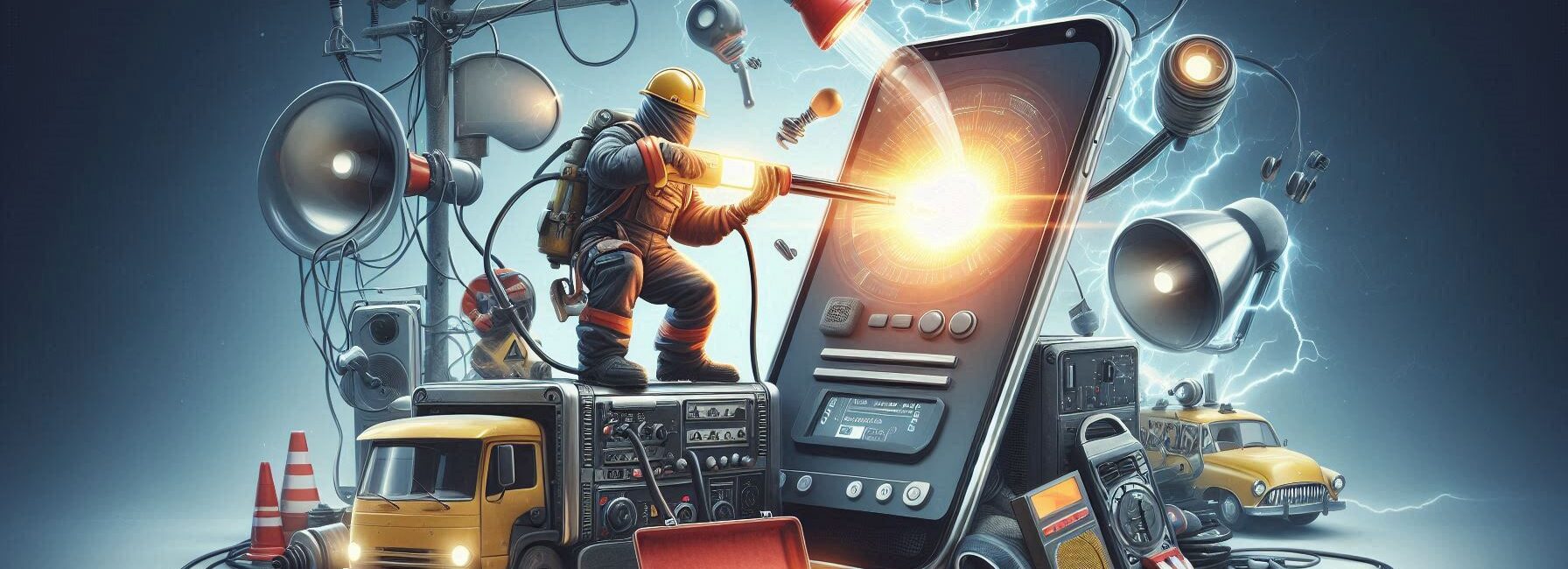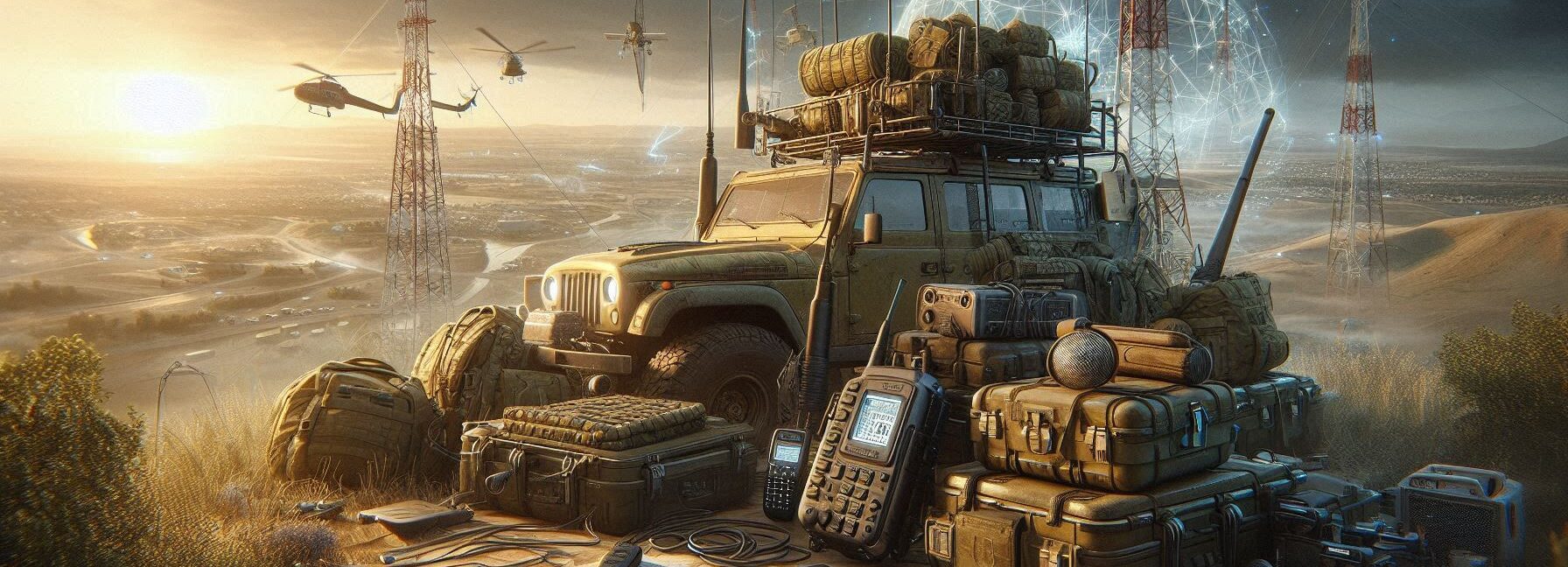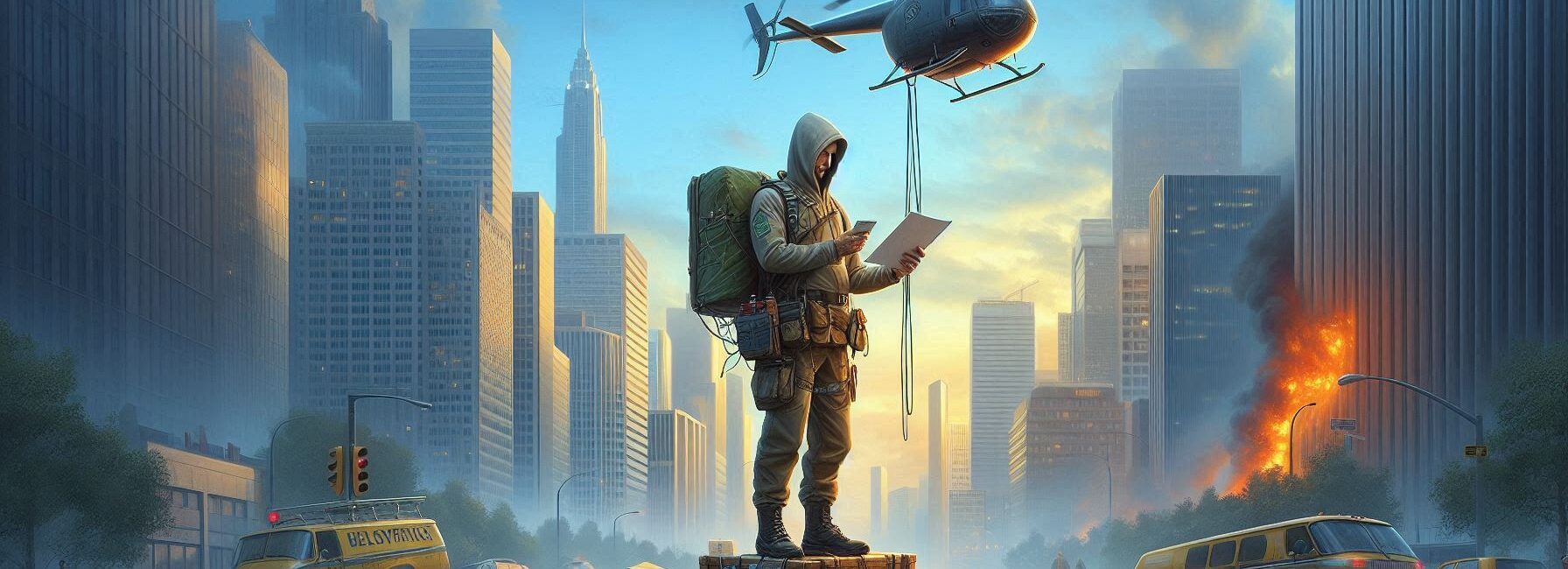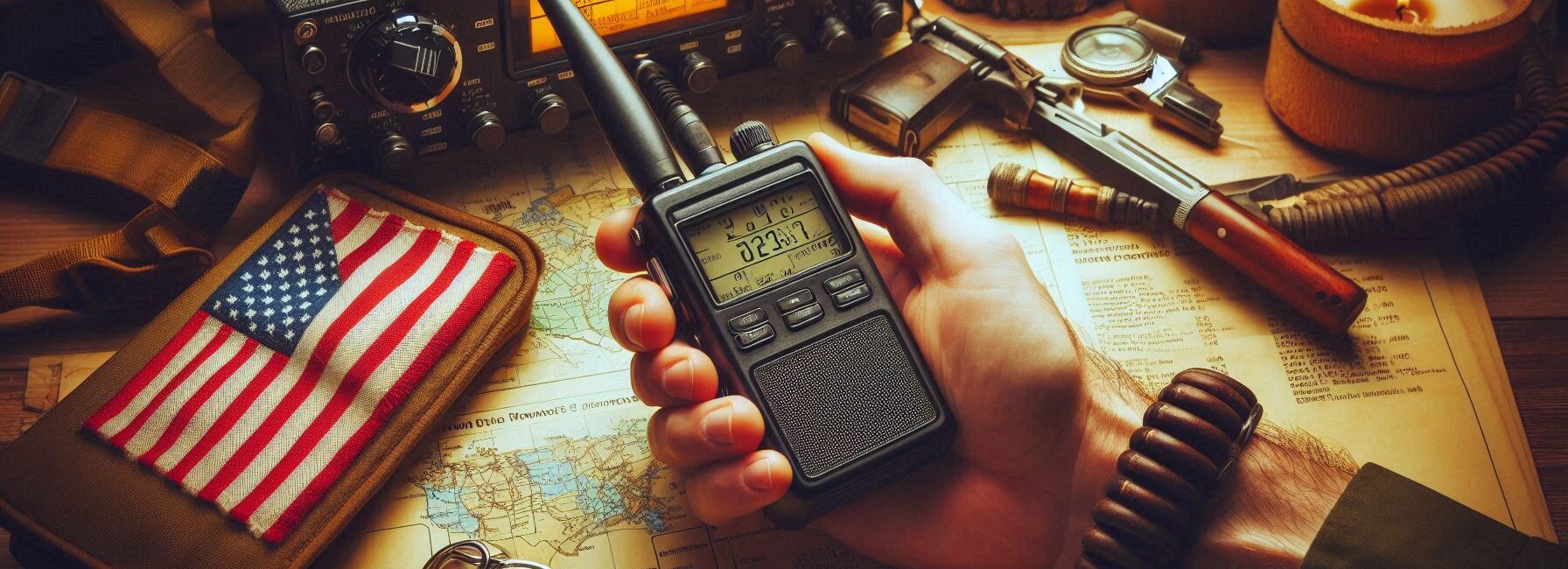Last Updated on November 2, 2025 by Kevin Collier

Top Takeaways and Key Concepts
- Build a support network of friends, family, and neighbors for emergencies.
- Organize meetups, workshops, or online forums to connect with like-minded people.
- Set up group messaging, bulletin boards, and regular check-ins for communication.
- Pool resources, skills, and supplies to help each other during crises.
- Create joint emergency plans with meeting points, action steps, and regular drills.
There are always surprises in the world nowadays. Like when your favorite snack isn't on the shelf anymore. Ugh, isn't it? That's why it's so important to have a robust support system. It's not only about sending memes or cat movies to each other (though those are really entertaining). It's about being there for each other when things go tough.
Think about the people in your life. Friends, family, and maybe even neighbors. It's not only about sharing recipes or gossip. It's about making sure everyone gets what they need when things go rough. You may try making a small group chat. You know, a place to share advice, tools, and even a few parenting tricks.
Please Note: This post may contain affiliate links. If you click one of them, we may receive a commission at no extra cost to you. As an Amazon Associate, I earn from qualifying purchases.
You might also set up a potluck or other get-together. You all bring food and sit around, talking, laughing, and getting to know each other. It makes me feel better. Also, you might learn some great new recipes!
It's a fun concept to share goodies in case of an emergency. When you go shopping, get some extra granola bars or dried fruit. Keep some at home and share it with your friends. Everyone can have goodies to eat when bad things happen. Who doesn't feel better after they have a snack?
Also talk about your skills. Everyone has something they can do, like gardening, cooking, or giving first aid. Someone might know how to ignite a fire or fix an automobile. Everyone may learn more by setting up small workshops. Spending time with each other makes a community stronger.
Encourage people to talk to each other. If someone is stressed, just listen. That might be all someone needs. It helps people trust each other. And trust is worth its weight in gold when life throws you curveballs.
Making a community doesn't have to include intricate plans or fancy events. Be there. Be there for each other, share, and help each other. A group of people who care about each other can do incredible things. This network might be the greatest way to prepare for a disaster. You have everything you need to do it!
Understanding the Need for Community Support
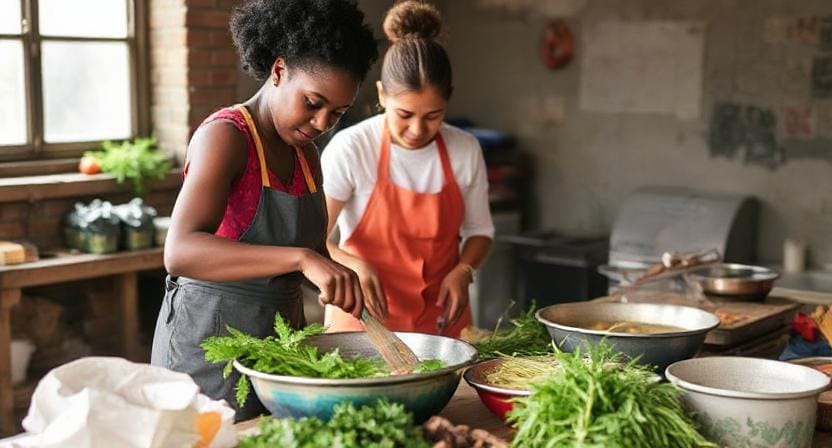
*** Shop for Survival Gear - Tools - Kits ***
Survival Gear - Bags and Backpacks - Knives - Boots/Footwear - Communication
Outdoor Cooking - Gloves - Hydration - Dry Boxes - Water Filtration Systems
Tents - Sleeping Bags - First Aid Kits - Multi-Tools - Flashlights - Fire Starters
Navigation - Survival Food - Night Vision - Headlamps - Stun Guns - Binoculars
We all love being free, but when something bad happens, whether it's a natural disaster or a man-made one, having a community of people you can count on makes all the difference. It sounds like a lot of work to fight off a bunch of zombies by yourself!
1. Strength in Numbers: First of all, there is strength in numbers. Having friends and neighbors around means you'll be better ready for whatever that comes your way, whether it's sharing food, water, or even information. You might also want someone on your squad who owns a chainsaw.
2. Abilities that everyone has: Every community has its own set of abilities. For example, one person might be great at gardening while another might be great at fixing items around the house. You can make a resource pool that is as useful as any Swiss Army knife by putting these skills together.
3. Moral Support: Honestly, nothing feels better than knowing that someone else is going through the same thing as you are. Having other people around gives you moral support and lifts your spirits, even if that means telling stupid jokes around the campfire.
Finding People Who Think Like You
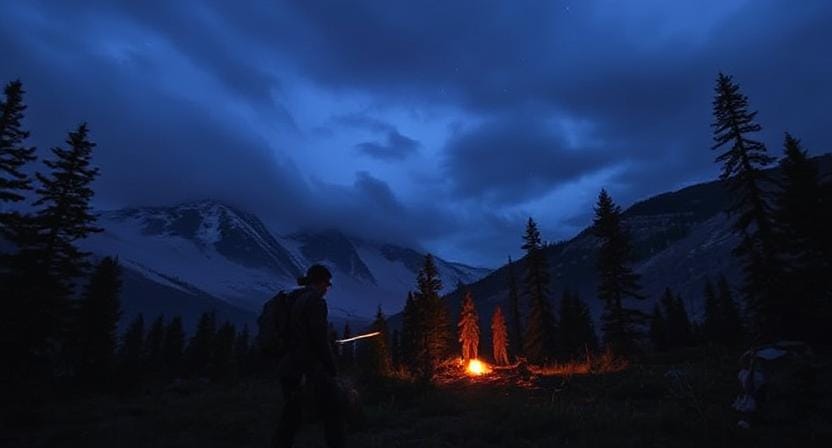
Now that we know why community networks are crucial, how do we discover people who think like us and won't run away when things become tough?
1. community Meetups: Start with simple get-togethers or potlucks in your community (who doesn't love free food?). People can talk about more than simply which lawn mower performs best at these informal events.
2. Online Forums and Social Media: It's interesting that social media isn't just for uploading images of your food from last night; it may also help you find local survival organizations online! Join forums where people talk about how to be ready and make friends with people who have similar interests.
3. Local workshops and Workshops: Think about going to local workshops on things like gardening or first aid (and yes, they generally include snacks). These classes draw people who want to learn new talents, and they might even become friends when things go wrong.
Setting up Ways To Talk To Each Other
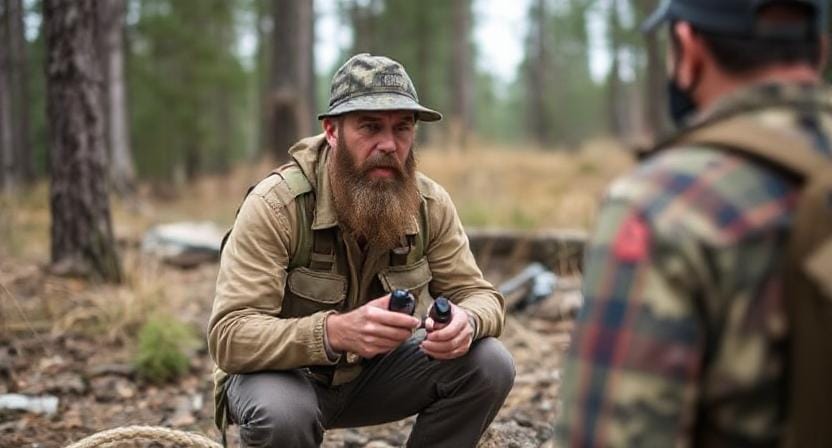
Let's talk about communication now that we've talked about relationships. It's important to set up good ways for everyone to be informed during emergencies.
1. Group Messaging applications: Use applications like WhatsApp or Signal to set up group chats so everyone can easily exchange updates in real time. This way, you'll know right away if a storm is on your way or if Aunt Edna needs help moving her couch.
2. Community Bulletin Boards: Set up bulletin boards in public places where people may put messages about meetings or important news (like “The bakery is giving away free cookies!”).
3. Regular Check-Ins: All things considered, regular check-ins help group members be responsible and make sure that everyone feels included, including those who would rather be alone most of the time.
Getting Ready by Pooling Resources
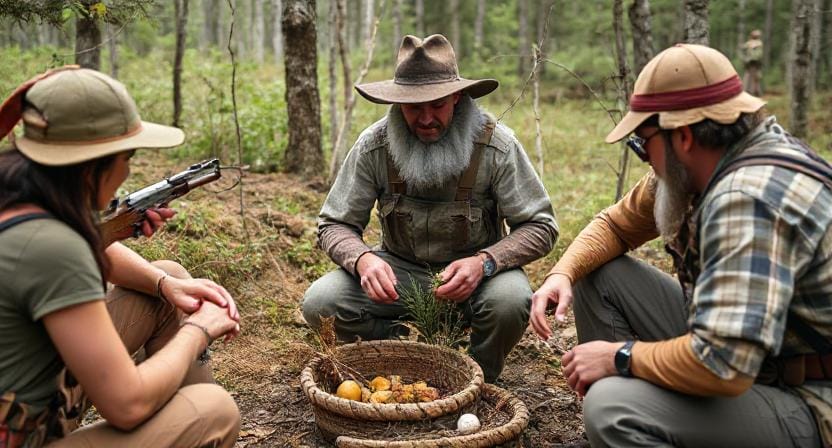
What's next once you've set up your network and made sure that communication is going well? It's time to share what you have!
1. Resource Inventory: Make a list of everything that each member has to provide, from additional canned goods hidden in closets to tools that are gathering dust in garages. This list should be available to all members.
2. Shared Supplies: If you have big things like generators or camping gear that one person doesn't require all year but could use in an emergency, you guessed it, share them! No one wants their generator to sit around collecting dust while another household needs power right away after a storm.
3. Skill-Sharing Sessions: Set up skill-sharing sessions where members teach each other useful skills like how to hunt or how to safely preserve food for long-term use (because who doesn't want home-canned peaches?)
Making Plans For Emergencies Together
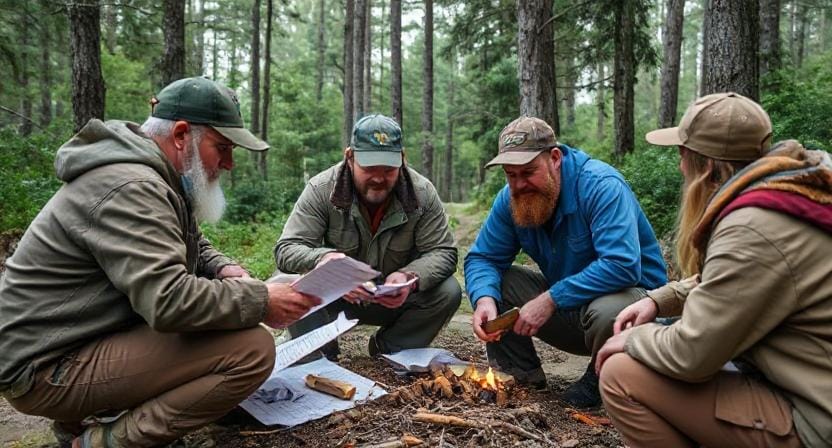
The most important part of any successful community survival network is making detailed emergency preparations together.
1. Make Action Plans: Work with your neighbors to make action plans that list what everyone should do in different situations, from natural disasters like hurricanes to civil upheaval (yes, those talks could get heated!).
2. Choose Meeting Places: Find safe places outside of homes where families can meet after a disaster. These places should be easy for everyone to get to but far enough away from areas that could be dangerous (like Joe's backyard BBQ area).
3. Do drills on a regular basis: This may sound ridiculous, but doing drills makes sure that everyone knows what to do when something goes wrong! Even while some people still forget which way to go home after getting lost again, practice makes perfect.
Conclusion
So, here's the deal. It's really vital to have a network of people in your neighborhood who can help you. It's like making a nice blanket fort for the good and bad times in life. You end up with a safety net because everyone brings their own skills.
Don't close those avenues of communication. A basic text or chat group can work wonders. Just check in on each other. “Hey, what's up?” or “Do you need anything?” Small notes can mean a lot.
Sharing resources is also very important. Maybe someone has some extra seeds or tools for the garden. Someone else might have a car to do errands. Putting together what you have makes everyone feel stronger. And who knows, you might even learn that someone in town makes the tastiest cookies. Yum!
Add some laughter to the mix. You might have a game night or cook together. In hard times, humor can help a lot. It makes people feel better and reminds them that it's okay to smile even when things are hard.
You don't need a big plan. Just real effort to connect, laugh, and share. When things become crazy, you can count on your crew to have your back. That's what makes life better. So get comfortable, get some food, and start making those links.
Frequently Asked Questions
Why is building a community network important for survival?
A community network strengthens resilience by combining skills, supplies, information, and emotional support during emergencies.
How can I find people who are interested in mutual survival?
Start by reaching out to friends, family, neighbors, and local groups or online forums that focus on preparedness and community support.
What are effective ways to keep group communication active?
Use group messaging apps, community bulletin boards, and regular check-ins to ensure everyone stays informed and involved.
What kinds of resources should a community group pool together?
Groups can share tools, food, knowledge, first-aid skills, and equipment that might benefit everyone during crisis situations.
How do we create a community emergency plan?
Work together to choose meeting points, outline action steps for different scenarios, and assign responsibilities to members.
Should we practice drills as a group?
Yes, regular drills reinforce actions, reduce confusion, and help everyone respond faster and more confidently during real emergencies.
Can social gatherings help strengthen community trust?
Absolutely. Potlucks, workshops, or casual hangouts help build bonds, making collaboration smoother when challenges arise.
Suggested Resources:
Building Resilience Through Community Networks
https://www.ready.gov/community-resilience
Emergency Preparedness Toolkit
https://www.redcross.org/get-help/how-to-prepare-for-emergencies.html
Creating Your Family Disaster Plan
https://www.fema.gov/media-library/assets/documents/14326

Kevin Collier is a seasoned survivalist and expert in prepping and homesteading, contributing to WiseSurvive.com. With a deep-rooted passion for self-sufficiency and outdoor survival skills, Kevin shares practical advice, strategies, and resources to help individuals prepare for any challenge. His informative articles cover a range of topics, from essential survival techniques to sustainable living practices, empowering readers to thrive in any situation. Whether you're a novice or a seasoned prepper, Kevin's insights will inspire you to take charge of your readiness and build resilience for the future.

